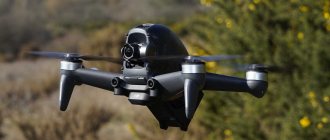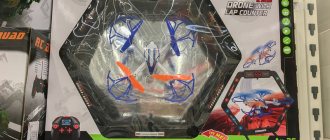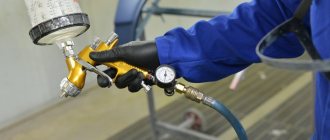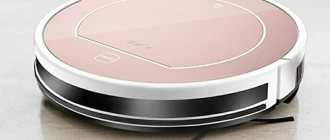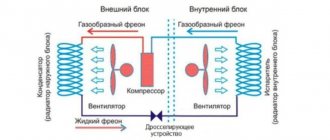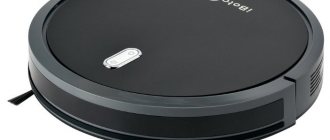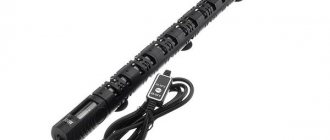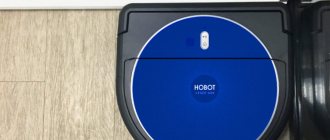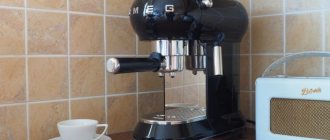Welcome to a world full of breathtaking landscapes!
Once upon a time, drones were used only by the military for reconnaissance. Now, anyone can buy a UAV. You can take the same photos or even better with top-of-the-line aerial photography drones. We have collected 16 of the best in this rating, so their prices will not be small. Let's start with the last one - 16th place. For those who do not have time to fully familiarize themselves with the rating, we have prepared the table below.
comparison table
| Name | Camera | Flight time | Claimed control range | Airspeed | Price | Review |
| Hubsan Zino 2 | 4K@60fps | up to 40 minutes | up to 8 km | up to 72 km/h | from 499$ | There is |
| FIMI X8 SE 2020 | 4K | up to 35 minutes | up to 8 km | up to 65 km/h | from 419$ | There is |
| Parrot Anafi | 4K | up to 25 minutes | up to 4 km | up to 50 km/h | from 650$ | There is |
| DJI Mini 2 | 4K | up to 31 minutes | up to 10 km | up to 57.6 km/h | from 449$ | There is |
| XDinamics Evolve | 4K | up to 21 minutes | up to 1 km | up to 96 km/h | from $2499 | There is |
| Yuneec Typhoon H Plus | 4K@60fps | up to 25 minutes | up to 1.6 km | up to 70 km/h | from $2192 | There is |
| DJI Mavic Pro (Platinum) | 4K | up to 27/30 minutes | up to 7km | up to 65 km/h | from 999$ | There is |
| Autel Robotics EVO | 4K@60fps | up to 30 minutes | up to 7km | up to 72 km/h | from 799$ | There is |
| Skydio 2 | 4K@60fps | up to 23 minutes | up to 3.5 km | up to 58 km/h | from $1349 | There is |
| DJI Mavic Air 2 | 4K@60fps | up to 34 minutes | up to 10 km | up to 68.4 km/h | from 799$ | There is |
| DJI AIR 2S | 5K@30fps | up to 31 minutes | up to 12 km | up to 68.4 km/h | from 999$ | There is |
| Yuneec Typhoon H3 | 4K@60fps | up to 25 minutes | up to 2 km | up to 70 km/h | from $3292 | There is |
| DJI Phantom 4 Pro V2.0 | 4K@60fps | up to 30 minutes | up to 10 km | up to 72 km/h | from 1599 | There is |
| DJI Mavic 2 Pro | 4K | up to 31 minutes | up to 10 km | up to 72 km/h | from $1599 | There is |
| Autel EVO II Pro | 6K | up to 40 minutes | up to 9 km | up to 72 km/h | from $1796 | There is |
| DJI Inspire 2 | 4K/5.2K/6K | 25 minutes | up to 7 km | up to 93 km/h | from $2999 | There is |
Tasks
First, consider how you plan to use the drone.
- Are you going to fly the quadcopter just for fun?
- Do you need a drone primarily for selfies and/or family photography from interesting angles?
- Are you planning to produce professional videos or quality content for social networks?
- How important is photography to you?
- Are you planning to take your drone with you on your travels?
Once you answer these questions, you can understand the main characteristics and functions of the quadcopter that you need to pay attention to before purchasing. In this article, we will not touch on cheap (and almost disposable) microdrones, which are essentially just toys, as well as large high-end drones designed for commercial filming.
Flight characteristics
Flight characteristics such as speed and maneuverability can be especially important if you plan to shoot fast-moving subjects.
- The maximum speed of a quadcopter is a critical characteristic for shooting cars in motion or extreme sports.
The stated flight time on a single battery charge for most drones is 15-30 minutes. In real flight conditions, it usually turns out to be less, including because it is recommended to land the drone with some charge reserve.
Top 3 mid-range quadcopters
Hubsan Zino 2
Zino 2 is exactly the case when looks are not the main thing... Photo: chinaplanets.com
Size: 5 Flight characteristics: 4 Flight time: 5 Data transmission, remote control: 4 Camera: 5 Additional functions: 4 Average score: 4.5
Hubsan is not a very popular company in the Western market, so you are unlikely to find Zino 2 among the top best quadcopters on foreign websites. However, this model of the Chinese brand can rightfully be considered one of the best mid-budget drones.
It is not inferior to DJI's offerings in this price segment, and in some ways even surpasses them, and the Zino 2 costs almost the same as the previously mentioned Mini 2.
The model shoots 4K video at 60 fps with a maximum bitrate of 100 Mbps, the camera is mounted on a removable 3-axis mechanical gimbal - it can be removed for easy transportation. The folding design also adds points in terms of transportability. The range of automatic flight and shooting modes is no worse than that of DJI drones - there is hyperlapse, points of interest, and panoramic shots.
On one charge, the drone can fly up to 33 minutes at a speed of 25 km/h. The quadcopter copes well with wind, and the maximum transmitter distance is 8 km. The control panel is included.
Among the disadvantages of Zino 2 is that it does not have an obstacle avoidance system, and propeller protection is also not included in the kit.
Parrot Anafi
... but the insect-like design of Anafi was loved by many. Photo: dronomania.ru
Size: 5 Flight characteristics: 4 Flight time: 3 Data transmission, remote control: 3 Camera: 4 Additional functions: 4 Average score: 3.8
There’s another quadcopter on our list that’s not exactly new, but it’s still good and shouldn’t be forgotten! This is an excellent drone for video shooting: a camera with a 21-megapixel matrix, lossless digital zoom and a good range of focal lengths. Anafi received a four for the camera due to the fact that mechanical stabilization is carried out only along two axes (the third axis is electronic), unlike the three-axis mechanical stabilization of competitors. On the other hand, a unique feature of this quadcopter is the stabilization gimbal, with which you can point the camera not only vertically downwards, as in most drones, but also vertically upwards. Anafi also has many interesting automatic shooting modes, including transtrave, when the subject remains motionless and the background “collides” into the viewer.
However, in a number of parameters the age of the model is already beginning to show. Anafi is inferior to competitors in terms of flight time on a single battery charge (25 minutes). Also, the drone does not have an obstacle avoidance system, so there is no need to rely on electronic assistance when controlling it. And Wi-Fi communications sometimes suffer from interference.
DJI Mavic Air 2
Air 2 has gained a little in size and weight compared to the original, but has not lost its compactness. Photo: ixbt.com
Size: 5 Flight characteristics: 4 Flight time: 5 Data transmission, remote control: 5 Camera: 5 Additional functions: 5 Average score: 4.8
The DJI Mavic Air 2 is firmly among the top consumer drones. And this is not strange, because DJI managed to make a super-balanced model. The Air 2 shoots great, flies great, folds great, and still maintains a reasonable price.
The camera is equipped with a fairly large 1/2-inch sensor, which helps when shooting in low light. The drone shoots 4K/60p and 1080p slow-mo at 240 fps. Mavic Air 2 also has a new remote control with OcuSync 2.0, and the signal itself is much more stable compared to Wi-Fi.
The Mavic Air 2 has become the golden mean between the simpler Mini 2 and the professional Mavic 2 Pro and Zoom. You can read more about the Mavic Air 2 in our review.
Comparing mid-range quadcopters
| Hubsan Zino 2 | Parrot Anafi | DJI Mavic Air 2 | |
| Size | 5 | 5 | 5 |
| Flight characteristics | 4 | 4 | 4 |
| Flight time | 5 | 3 | 5 |
| Data transmission, remote control | 4 | 3 | 5 |
| Camera | 5 | 4 | 5 |
| Additional functions | 4 | 4 | 5 |
| Average score | 4,5 | 3,8 | 4,8 |
The DJI Mavic Air 2 is newer than its competitors and generally outperforms them in most respects. Well, in general, it’s quite difficult to compete with it: this is a truly high-quality universal drone.
Additional accessories
In addition to the drone itself, you will probably need additional accessories - this should be taken into account when you calculate the required budget.
First of all, these are additional batteries, and their costs vary quite a lot. For example, a battery for DJI Spark will cost about 5 thousand rubles, and for DJI Mavic Air 2 - already 8 thousand. Add two or three batteries and the price of the drone increases significantly. Sometimes quadcopters are sold complete with several batteries (for example, the Fly More Combo version from DJI). Pilots who fly quite often may need a separate hub to quickly charge the quadcopter's batteries.
Other accessories include polarizing and ND filters for video shooting, microSD cards, spare parts like propellers, and for larger drones, a carrying case or backpack.
Automatic modes and obstacle avoidance systems
Automatic (smart) flight modes can be very useful because they can take over some or even all of the flight control while you can focus on the creative part of shooting. Many of these modes are already standard on new drone models, but do you need them?
- If you primarily shoot photographs, you should pay attention to models that have special photo modes: panorama shooting, vertical stitching, as well as advanced settings such as manual exposure or automatic exposure bracketing (the camera takes three or more identical frames from different exposure values in each).
For video, automatic flight modes are even more important: they make it easier to track a subject and allow even novices to get cinematic shots. The smooth drone movement these modes provide helps improve video quality without resorting to complex shooting techniques.
Obstacle avoidance systems will not eliminate the need to learn to fly a drone and will not replace careful piloting, but they will help avoid collisions with large objects: trees, buildings. In addition, these systems are useful for navigating in confined spaces. The most common type of obstacle avoidance sensors are front-facing sensors, which look forward in front of the aircraft. There are also models equipped with sensors on the rear, bottom and sides.

